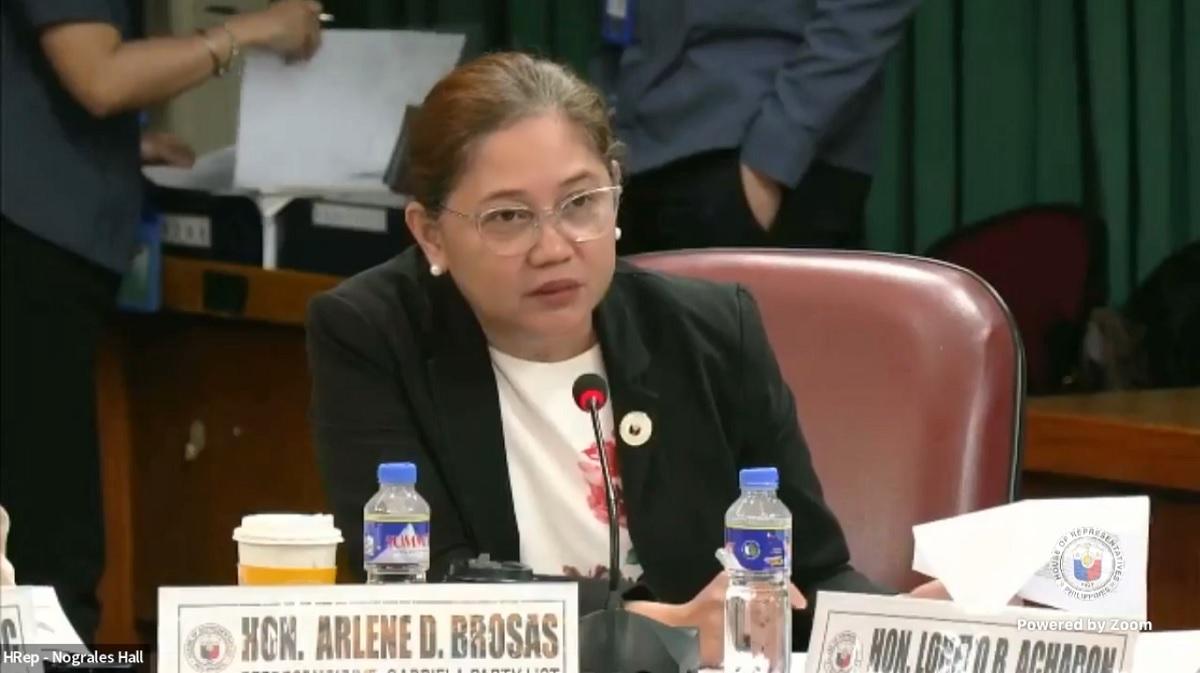Allowing GCTA for heinous crimes diminishes their gravity –Brosas
By LLANESCA T. PANTI, GMA Integrated News Published April 10, 2024 5:00pm The Supreme Court decision allowing prisoners convicted of rape and other heinous crimes to shorten their prison time through good conduct lessens the gravity of these crimes and brings their victims additional suffering, House Assistant Minority Leader Arlene Brosas said Thursday. In a ruling […]


By LLANESCA T. PANTI, GMA Integrated News
The Supreme Court decision allowing prisoners convicted of rape and other heinous crimes to shorten their prison time through good conduct lessens the gravity of these crimes and brings their victims additional suffering, House Assistant Minority Leader Arlene Brosas said Thursday.
In a ruling released last week, the Supreme Court stated that the Department of Justice “exceeded its power of subordinate legislation” when it revised the good conduct time allowance (GCTA) law’s IRR to explicitly exclude convicts of heinous crimes from benefiting.
In Philippine law, heinous crimes include rape, murder, infanticide, kidnapping and serious illegal detention, robbery with violence or intimidation, and treason.
“Granting GCTA to individuals who committed rape and other heinous crimes may normalize brutal offenses. This diminishes the gravity of the crimes and sentences, causing even more anguish for the victims and their families,” Brosas, the Gabriela party-list representative, said in a statement.
“Hustisya, hindi laya ang panawagan ng mga biktima ng mga brutal na krimen. Ang dapat pagtuunan ng pansin ay ang pagpapatibay ng mga batas upang mapanagot ang mga nagkasala, lalo na ang mga nasa kapangyarihan, sa panahong mas lalong tumitindi ang krimen at impyunidad sa ating bansa,” she added.
(Victims of brutal crimes seek justice, not the release of offenders. We should focus on galvanizing our laws to hold perpetrators to account, especially those who wield power, amid the increase in crime and impunity in the country.)
Brosas said that in 2021, the Gabriela Women’s Party proposed the exemption of persons of authority from qualifying for GCTA, citing the case of former mayor Antonio Sanchez.
Sanchez was convicted of seven counts of rape and seven counts of homicide over the rape and killing of Eileen Sarmenta and the death of Allan Gomez, both UP Los Baños students, in 1993.
The GCTA law drew flak in 2019 after it was reported that Sanchez could soon be freed due to good conduct.
Sanchez eventually died in prison in March 2021.
“At this point, Congress should now amend Republic Act No. 10592 (GCTA law) and include in its provisions that persons of authority must not be allowed to avail benefits from GCTA. Instead, political prisoners who have been charged and convicted for trumped-up or politically motivated cases should be prioritized,” Brosas said.
Section 3 of the GCTA law states that “the good conduct of any offender qualified for credit for preventive imprisonment pursuant to Article 29 of this Code, or of any convicted prisoner in any penal institution, rehabilitation or detention center or any other local jail should entitle him or her the following deductions:
- During the first two years of imprisonment, he shall be allowed a deduction of twenty days for each month of good behavior during detention;
- During the third to the fifth year, inclusive, of his imprisonment, he shall be allowed a reduction of twenty-three days for each month of good behavior during detention;
- During the following years until the tenth year, inclusive, of his imprisonment, he shall be allowed a deduction of twenty-five days for each month of good behavior during detention;
- During the eleventh and successive years of his imprisonment, he shall be allowed a deduction of thirty days for each month of good behavior during detention; and
- At any time during the period of imprisonment, he shall be allowed another deduction of fifteen days, in addition to numbers one to four hereof, for each month of study, teaching or mentoring service time rendered.”
— BM, GMA Integrated News














